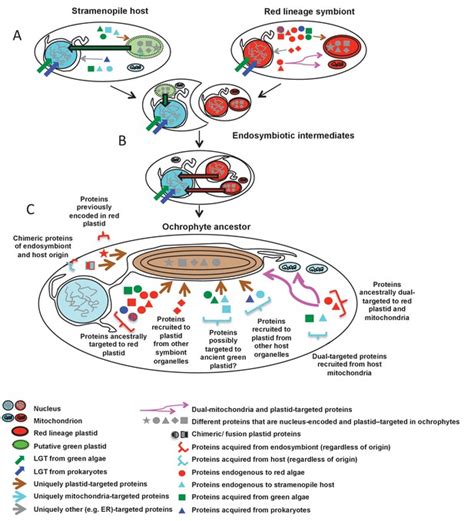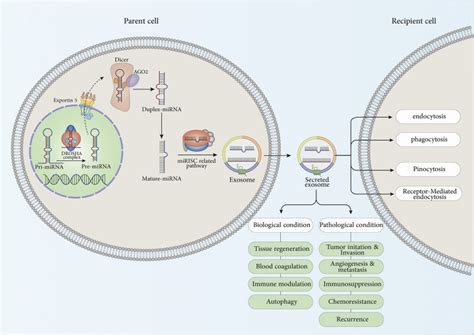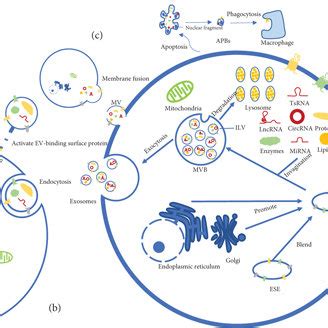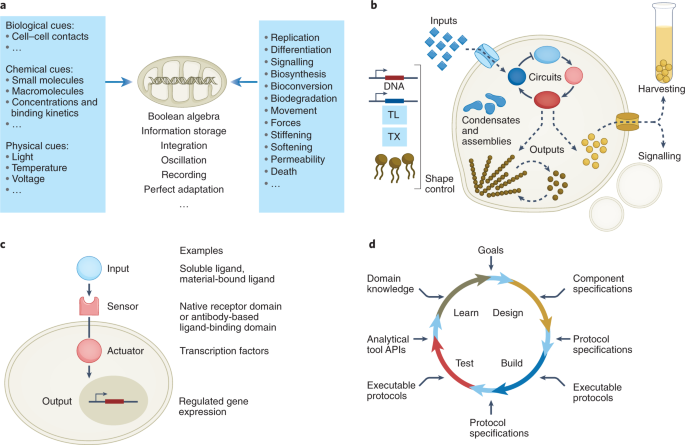Artificial life and synthetic biology represent the frontier of biological innovation, merging science and technology to create novel forms of life and biological systems. In recent years, breakthroughs in these fields have reshaped our understanding of genetics, organism development, and data storage at a molecular level. From advanced genetic engineering techniques to the creation of synthetic organisms and biocomputing technologies, these innovations hold immense potential for medicine, healthcare, and beyond. However, with these advancements come ethical considerations and regulatory challenges that must be addressed. This article explores the latest innovations and discoveries in artificial life and synthetic biology, shedding light on the future of this transformative science.
Come explore this topic with tirfblog.com for a deeper understanding.
1. Overview of Artificial Life and Synthetic Biology
Artificial life and synthetic biology are pioneering fields that blend biology, engineering, and computer science. Artificial life, commonly known as “A-life,” focuses on researching and constructing systems that emulate biological processes. These systems can exist solely in the digital realm as computer simulations or take on physical forms like robots or biochemical creations, all engineered to display lifelike characteristics.
Synthetic biology, in contrast, emphasizes the design and construction of novel biological components, devices, and systems. It also seeks to redesign existing natural biological systems for practical applications. This field surpasses traditional genetic engineering by employing engineering principles to biology, allowing the creation of entirely new organisms with specific, customized functions.
These disciplines work in concert to redefine the boundaries of “life,” unlocking a wealth of new possibilities across fields like medicine, environmental management, and biotechnology. For instance, advances in synthetic biology have yielded synthetic organisms capable of producing biofuels, pharmaceuticals, and other valuable chemicals. As these fields continue their evolution, they hold the potential to revolutionize our approach to addressing global challenges, while simultaneously raising profound ethical and philosophical questions.

2. Recent Advances in Genetic Engineering Techniques
Recent advances in genetic engineering techniques have significantly propelled the advancement of artificial life and synthetic biology. A key development in this field is CRISPR-Cas9, a revolutionary tool enabling scientists to precisely edit DNA sequences with remarkable accuracy and efficiency. This technology has paved the way for a wide spectrum of applications, ranging from correcting genetic disorders to engineering organisms with enhanced or novel characteristics.
Beyond CRISPR, groundbreaking technologies like base editing and prime editing have emerged, offering even more precise genetic modifications. These techniques allow for the direct manipulation of individual nucleotides within the genome, minimizing the risk of unwanted mutations and expanding the possibilities for targeted therapies.
Furthermore, progress in synthetic genomics has facilitated the construction of entirely artificial chromosomes, enabling the development of organisms with customized properties. These innovations not only broaden our comprehension of genetics but also pave the path for the creation of synthetic life forms with potential applications in medicine, agriculture, and environmental stewardship.

3. Key Innovations in Synthetic Organism Development
The field of synthetic organism development is experiencing a surge in groundbreaking advancements, pushing the limits of biological possibilities. A significant milestone in this field is the creation of minimal genomes, where researchers have successfully reduced an organism’s genetic material to its core essentials. This achievement enables the design of simplified, efficient organisms capable of carrying out specific tasks, such as the production of pharmaceuticals or biofuels.
A notable breakthrough is the creation of synthetic cells, meticulously engineered from scratch using artificial components. These cells possess the remarkable ability to be programmed to perform a range of tasks, from detecting shifts in the environment to manufacturing therapeutic compounds and even dismantling pollutants.
Furthermore, the development of synthetic organisms with intricate biochemical capabilities has spurred advancements in biomanufacturing. For example, scientists have created microorganisms that can produce valuable chemicals and materials, providing eco-friendly replacements for conventional manufacturing methods.
These innovations showcase the transformative power of synthetic biology across numerous industries. They also underscore the growing ability to manipulate and engineer life at its most fundamental, molecular level.

4. Breakthroughs in Biocomputing and DNA Data Storage
Synthetic biology is pushing the boundaries of computing and data storage through two exciting advancements: biocomputing and DNA data storage. Biocomputing utilizes biological molecules like DNA and proteins to perform computational tasks, introducing a revolutionary way to process information at the molecular level. Scientists have achieved remarkable progress in engineering biological circuits within cells to execute logical operations. This opens doors for the development of living systems capable of autonomous data processing, decision-making, and environmental response.
DNA data storage, a revolutionary advancement, leverages the genetic material to encode and store vast quantities of information. Unlike conventional storage media, DNA boasts exceptional density and durability, capable of safeguarding data for millennia. Recent breakthroughs have facilitated the precise encoding and retrieval of information from synthetic DNA strands, opening up applications ranging from archiving vital data to developing living memory systems within cells.
The strides made in biocomputing and DNA data storage demonstrate the adaptability of biological systems while simultaneously ushering in new possibilities in computing and information technology.
5. Applications of Synthetic Biology in Medicine and Healthcare
Synthetic biology is transforming medicine and healthcare by driving the development of groundbreaking therapies, diagnostics, and medical technologies. A particularly promising area is gene therapy, where synthetic biology tools are employed to repair or replace faulty genes responsible for a range of genetic disorders. The progress in genetic engineering, notably CRISPR and base editing, has enabled the precise targeting and correction of mutations, offering a new beacon of hope for treating previously untreatable diseases.
Another significant application is the design of synthetic organisms capable of producing therapeutic compounds, such as complex drugs and biologics. These engineered microbes are programmed to manufacture medicines more efficiently and cost-effectively than traditional methods, thereby increasing the accessibility of treatments.
Synthetic biology is also a catalyst for innovation in diagnostics. This field is witnessing the development of biosensors capable of detecting diseases at their earliest stages. These sensors are engineered to respond to specific biomarkers, enabling rapid and accurate diagnostics that can facilitate early interventions.
Furthermore, personalized medicine is leveraging the power of synthetic biology. This is enabling the creation of custom-designed organisms and therapies specifically tailored to each individual’s unique genetic profile. This advancement is leading the way for more effective and precisely targeted treatments.
6. Ethical Considerations and Regulatory Challenges
Rapid advances in synthetic biology and artificial life have spurred significant ethical considerations and regulatory challenges. As scientists continue to push the boundaries of creating and modifying life, questions about the moral implications of these technologies become ever more pressing. A central concern is the potential for unintended consequences, such as the accidental release of synthetic organisms into the environment. Such an event could disrupt ecosystems or lead to unpredictable evolutionary changes.
Ethical debates are particularly heated when it comes to manipulating human genetics, especially through gene editing. The potential to create “designer babies” or make irreversible alterations to the human genome sparks worries about fairness, informed consent, and the long-term consequences for society. These concerns underscore the critical need for strong ethical guidelines to ensure the responsible use of synthetic biology.
Governments and international organizations are grappling with the challenge of regulating rapidly evolving synthetic biology technologies. Existing regulations may fall short in addressing the unique risks posed by synthetic organisms and gene editing tools. This has prompted calls for updated policies that strike a balance between fostering innovation and safeguarding public health and the environment. Such policies would ensure that advancements in synthetic biology are developed and deployed responsibly.
The continuous progress of synthetic biology necessitates ongoing dialogue among scientists, ethicists, policymakers, and the public to effectively address the complex ethical and regulatory challenges it presents.
7. Future Prospects and Emerging Trends in Synthetic Biology
Synthetic biology holds the potential for groundbreaking advancements and widespread transformations in various fields. A significant emerging trend is the fusion of synthetic biology with artificial intelligence and machine learning. This convergence is anticipated to expedite the design and optimization of synthetic organisms and biological systems through the use of more accurate simulations and predictive models.
A promising avenue for advancement lies in the development of sophisticated bioengineering techniques that surpass current limitations. Innovations like programmable cells, capable of executing complex tasks or reacting to environmental cues, hold the potential to revolutionize fields such as environmental remediation, agriculture, and personalized medicine.
The integration of synthetic biology with fields like materials science and nanotechnology is poised to fuel groundbreaking advancements. This convergence could lead to the development of living materials with tailored properties or the creation of nanoscale biological sensors, potentially revolutionizing numerous industries.
Furthermore, as technological development progresses, we anticipate a heightened focus on sustainability and ethical concerns. Advancements in the field will likely prioritize the development of environmentally friendly practices and the responsible application of synthetic biology. This will align with prevailing societal values and regulatory frameworks.
Synthetic biology and artificial life are rapidly advancing fields that hold transformative potential for science and society. From revolutionary genetic engineering techniques to groundbreaking applications in medicine and data storage, these innovations promise to reshape our understanding of life and its possibilities. As we navigate the ethical and regulatory challenges, the future of synthetic biology will depend on balancing innovation with responsibility, ensuring that these advancements benefit humanity and the environment.
tirfblog.com

